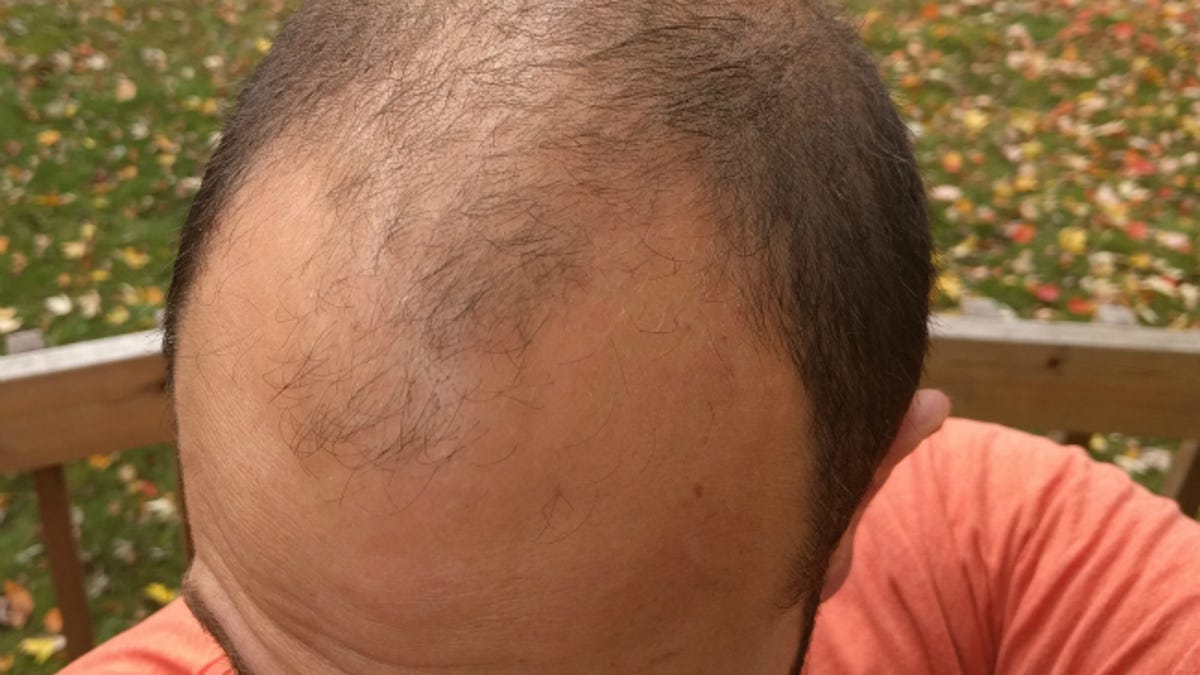Mice discovery shows promise for 'rapid and robust hair growth' in bald humans
A serendipitous find leads Columbia University researchers to conclude that a drug applied directly to the skin could show real promise for broadly treating hair loss.
In studying ways to help people with hair loss caused by an autoimmune attack on the follicles, researchers at Columbia University Medical Center made a serendipitous discovery that could have implications for combatting all baldness.
The team was looking into treating the condition known as alopecia areata with drugs that inhibit a family of enzymes found in hair follicles known as Janus kinase, or JAK.
Last year, Angela M. Christiano, a professor of dermatology and genetics and development, and her colleagues reported that JAK inhibitors were effective in shutting down the signal that provokes the autoimmune attack. They also found that when the drug was given orally, it helped restore hair growth in some people with alopecia areata.
Now, however, the team reports that JAK inhibitors applied directly to the skin promote "rapid and robust hair growth," according to Columbia University Medical Center. In fact, in studies with mice, after just three weeks of treatment, the rodents had grown nearly all of their hair back. The drugs also produced hair from cultured human follicles in the lab. This latest work appears the journal Science Advances.
The mouse in the middle and the mouse on the right had half their bodies treated with the two JAK inhibitors currently approved by the FDA. They grew nearly all of their hair back.
"There aren't many compounds that can push hair follicles into their growth cycle so quickly," Christiano said in the report. "Some topical agents induce tufts of hair here and there after a few weeks, but very few compounds have this potent an effect so quickly."
Hair follicles normally switch between being active and dormant. The Columbia researchers found that the drugs affect the follicles by forcing them into the "on" position.
Christiano was careful to caution that the researchers don't yet know if the treatment will work on humans in treating pattern baldness, which causes both men and women to lose their hair as they age.
"What we've found is promising, though we haven't yet shown it's a cure for pattern baldness," she said. "More work needs to be done to test if JAK inhibitors can induce hair growth in humans using formulations specially made for the scalp."
That work is currently being carried out by the team and if it's successful, could lead to a product to help both men and women fight baldness and thinning hair.
The most common cause of hair loss in men and women is hereditary, with 80 million people affected in the United States alone, according to the American Academy of Dermatology. About 70 percent of men and 40 percent of women will experience hair thinning as they age, according to Medical Daily. Hair loss occurs when hair follicles get damaged and/or go dormant.
Current effective treatments for baldness include the topical application of Finasteride (Propecia) and Minoxidil (Rogaine), or hair transplants. In the case of the first two treatments, hair growth stops after application of the medication stops, and it's unclear whether that would also be the case with a topical version of JAK inhibitors for humans.
In the meantime, two JAK inhibitors that have FDA approval are undergoing clinical trials for the treatment of alopecia areata as well as for plaque psoriasis, an inflammatory skin disorder.


